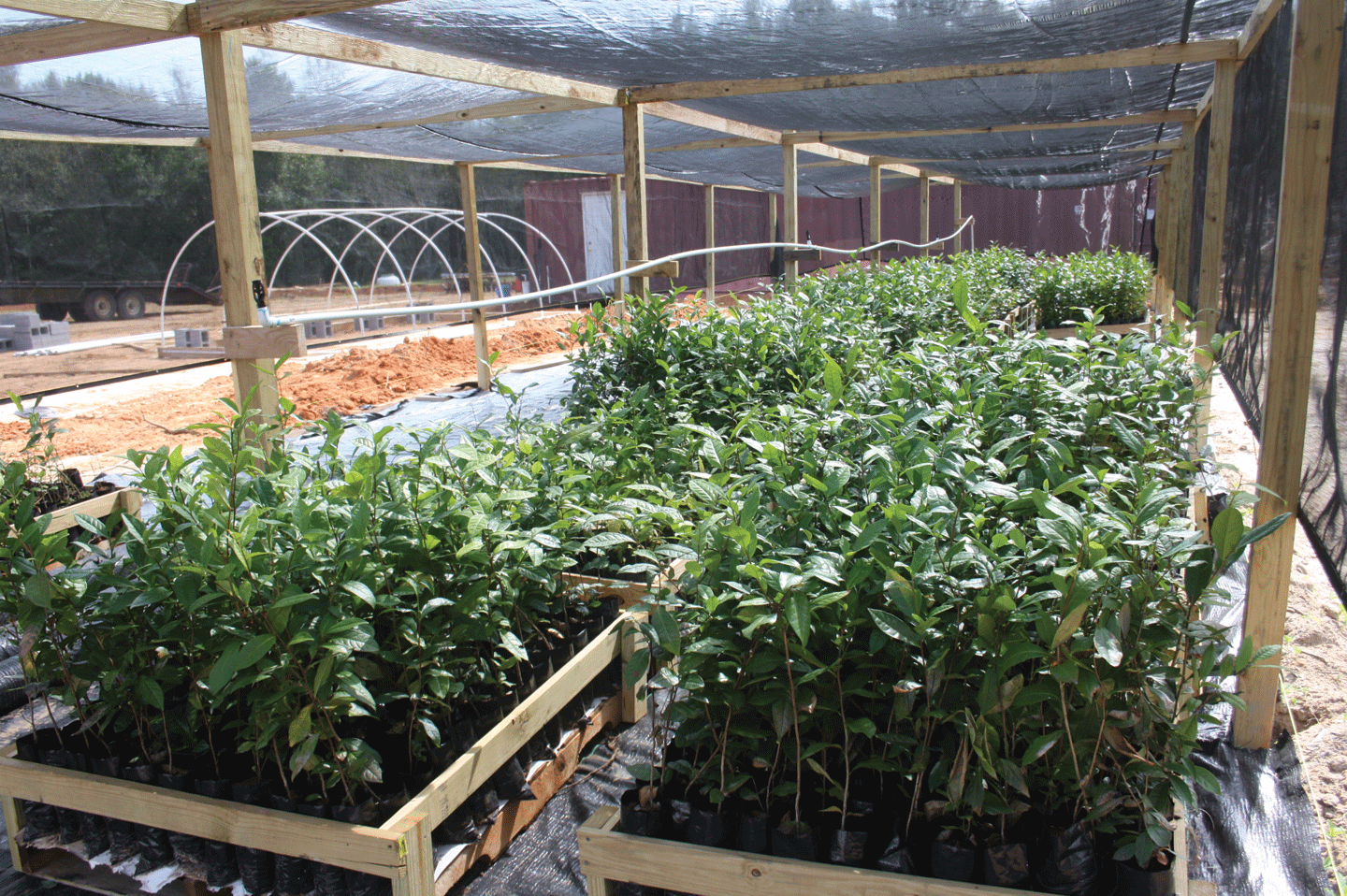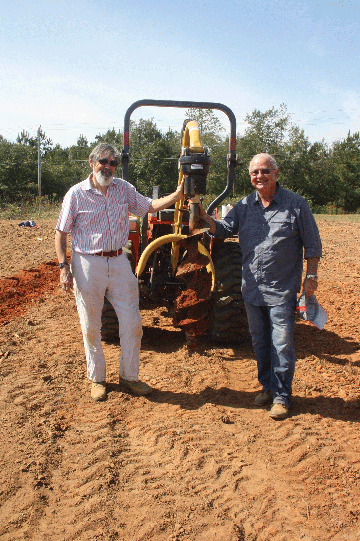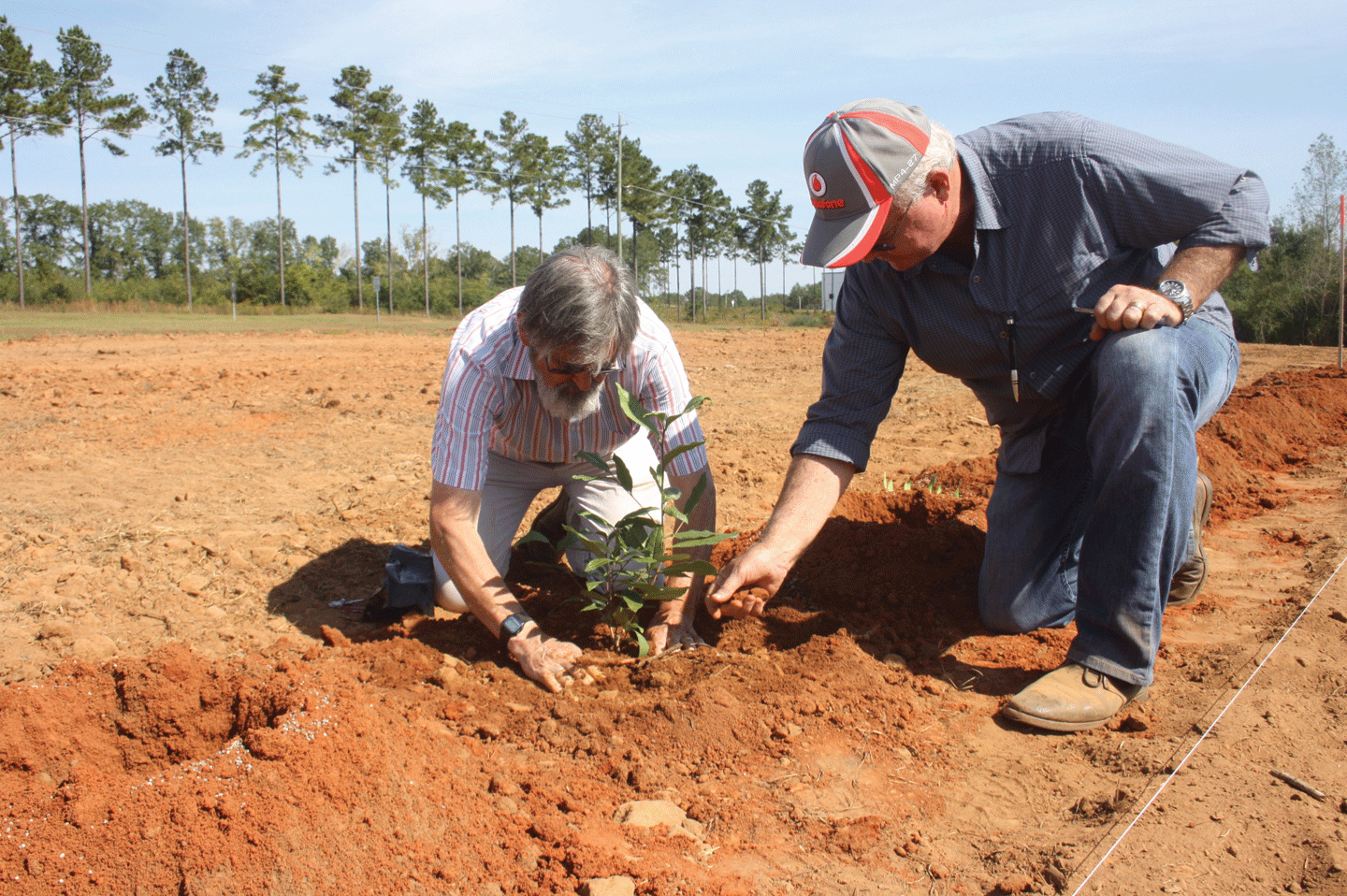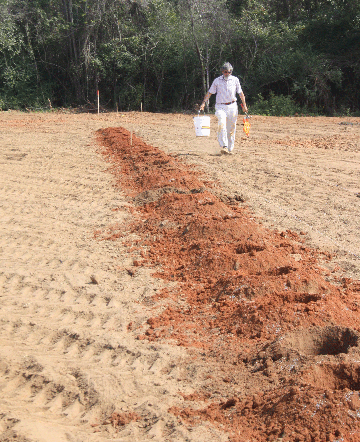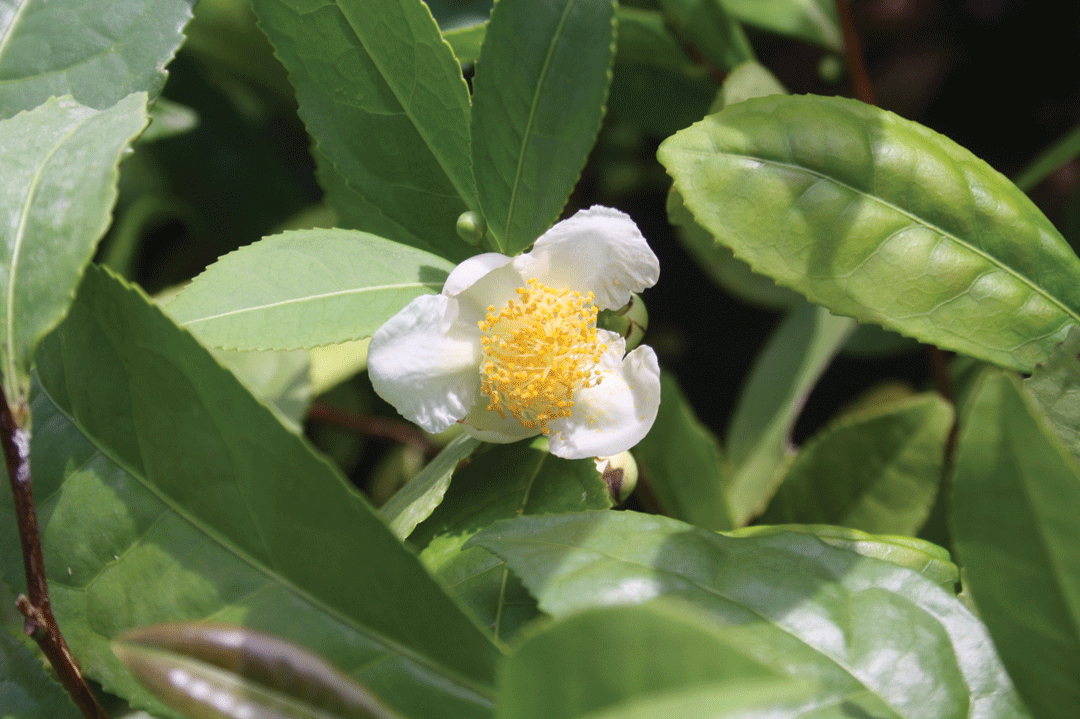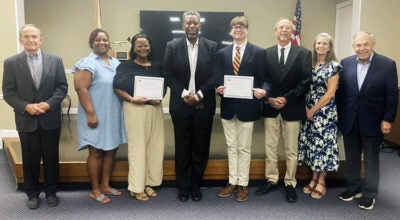Cultivating change
Published 12:15 am Wednesday, October 30, 2013
Work done here could modernize tea world
Part of a dream began to come true this past weekend for Bob Sims. The Texas entrepreneur and Alabama native has long had an interest in growing his family’s tea business from the sale of tea to the cultivation and processing of tea. Now he is working to make that dream come true in Andalusia.
- Approximately 7,000 tea plants, grown from seeds imported from Eastern Europe, are ready to be planted.
- Nigel Melican and Bob Sims. In three decades in the business, Melican had never used an auger for planting.
- Melican, left, and Sims plant the first local plant.
- Melican walks a newly-prepared row.
- In the tea industry, blooms are not good. But they are pretty, and illustrate that the tea plant is a “cousin” to the camellia.
With the help of the British tea consultant Nigel Melican, Sims has been researching the possibility of growing tea in or near Andalusia for several years.
Melican selected a tea plant in ex-Soviet Georgia as the one he believes will do well here. The selection, Melican said, was based on his experience and the local climate.
“Tea,” Melican said, “loves humidity.”
And while ex-Soviet Georgia may not be a place one thinks of as a tea-growing nation, Melican said the Georgians produce more than 200,000 pounds of tea per year – mainly for their own use.
“I chose this tea for Bob because it is hearty,” he said. “It’s built like a Soviet tank.”
On Valentine’s Day of 2011, a shipment of seeds left Georgia for Andalusia.
“It was 20 below in Georgia,” Sims said. “And the shipment was held up by the U.S. Department of Agriculture. What was supposed to be overnight delivery took seven days.”
When 20,000 seeds finally arrived – in less than optimal condition – Sims had them planted here and placed in greenhouses.
Two-and-a-half years later, this past weekend, Sims, Melican, and other helpers began planting the resulting 7,000 seedlings. Sims is partnering with AHS ag instructor Anthony Mikel and his students for the project.
Sims is using approximately 11 acres at the entrance to the Andalusia Industrial Park which he is acquiring in a lease/purchase program with the Andalusia Industrial Board. Before it was purchased by the city, the property had a long history as a peanut field.
Sims said it makes sense to cultivate tea there.
“If you think about it, most of the places where tea is grown, they don’t have access to water,” he said. “Here, the utilities are already installed, which helps us.”
By comparison, Melican said he recently worked in Ethiopia where even his overnight accommodations had no water.
If his tea experiment works, Sims said he also plans to add a processing plant in the park. Ideally, he wants to find a way to work cooperatively with area farmers and get them to grow tea, too.
“Farmers do almost everything else cooperatively,” he said. “I’m sure we can find a way to do this, too.”
Sims envisions producing speciality loose-leaf teas that could retail for more than $100 a pound.
As Melican and Sims began planting on Sunday, they did something Melican had never before experienced in three decades as a consultant – partially mechanized planting. In the space of a morning, using a tractor and an auger, a row was prepared for planting the seedlings 36-inches apart.
“Normally, it would take a team of 10 or 12 men all day to dig these holes,” he said. While that labor is not expensive in the developing world, it is becoming more difficult to find farm laborers in places like China, where there is an ongoing migration of people to the cities, similar to the one America experienced at the middle of the last century.
“The old-timers wonder how they’ll get the work done,” Melican said. “What we do here could lay the foundation for how to mechanize the tea world.”
Tea needs the “meticulous care” that is typical of farming in America, he said.
Last week, he helped a farmer plant tea in Brookhaven, Miss. In the United States, tea also is being grown in California, Hawaii, Oregon and South Carolina.


